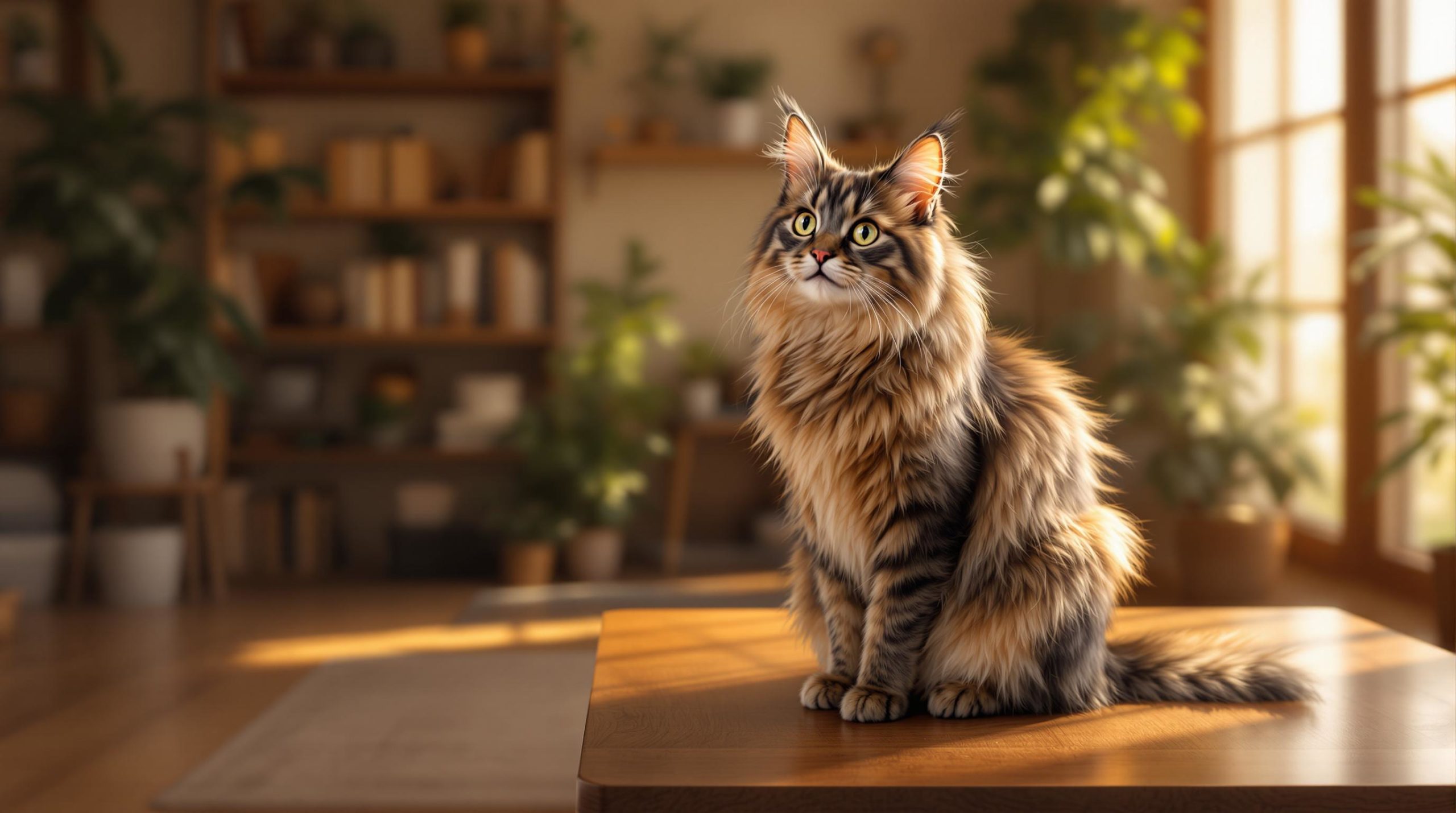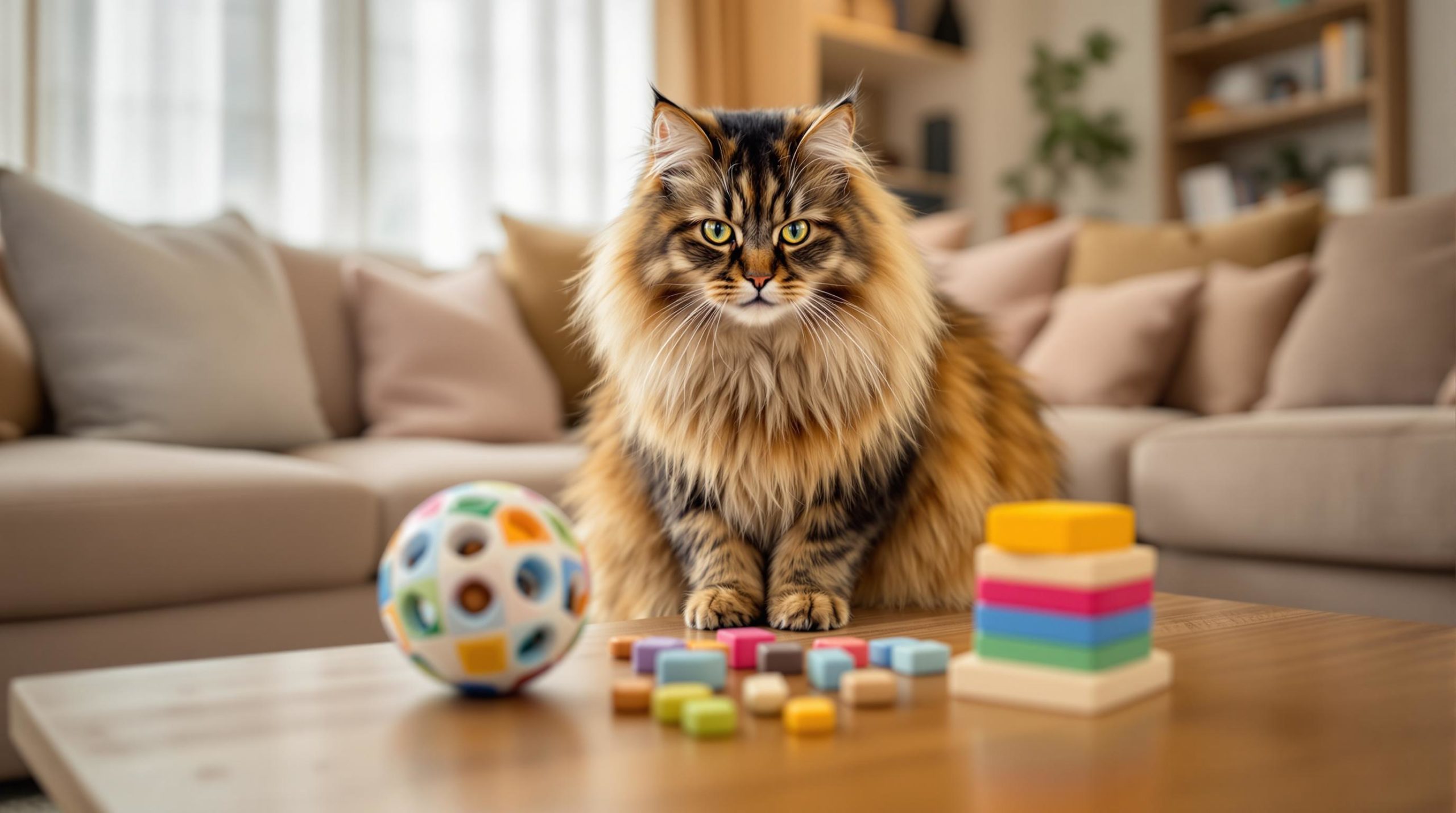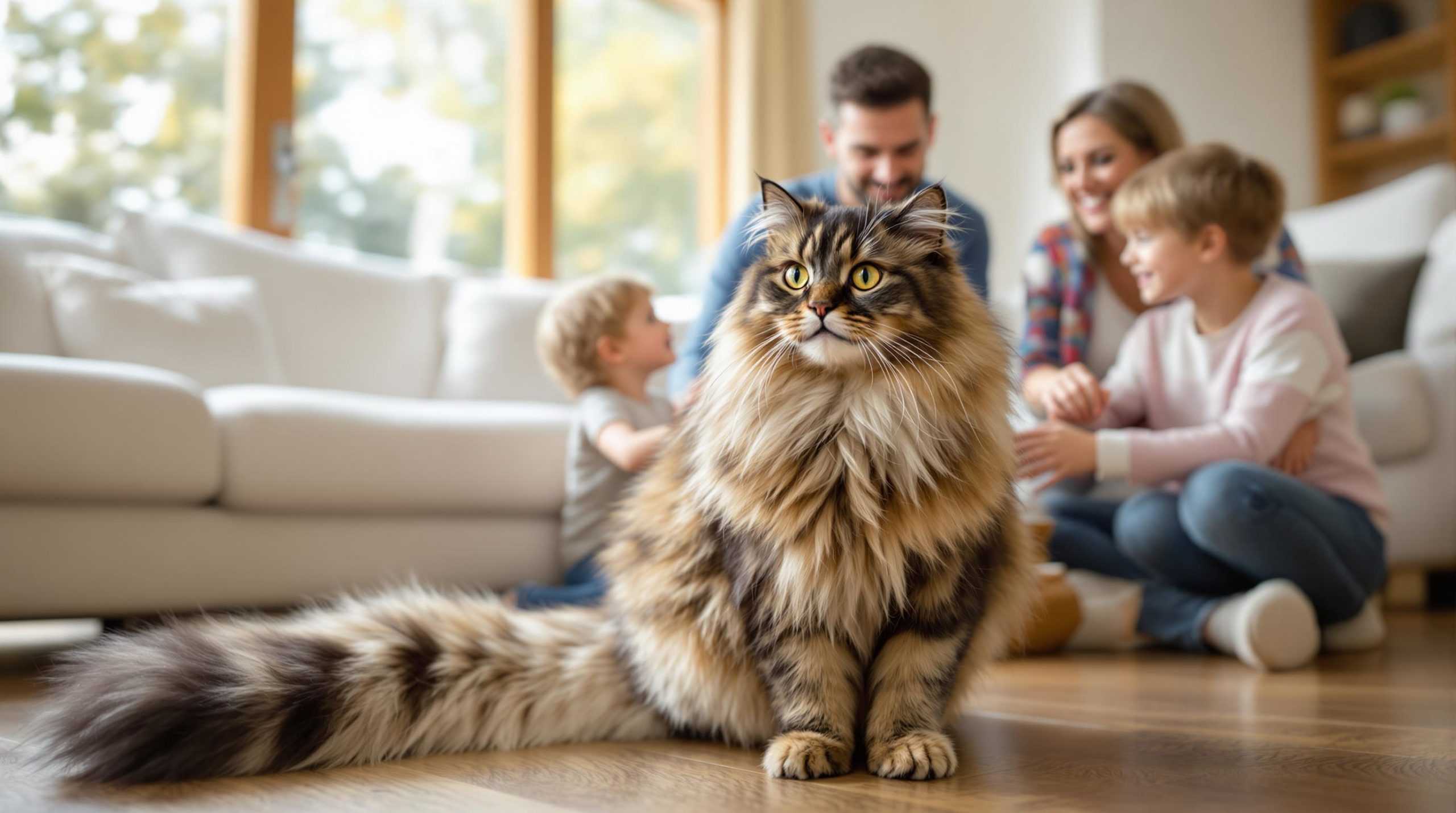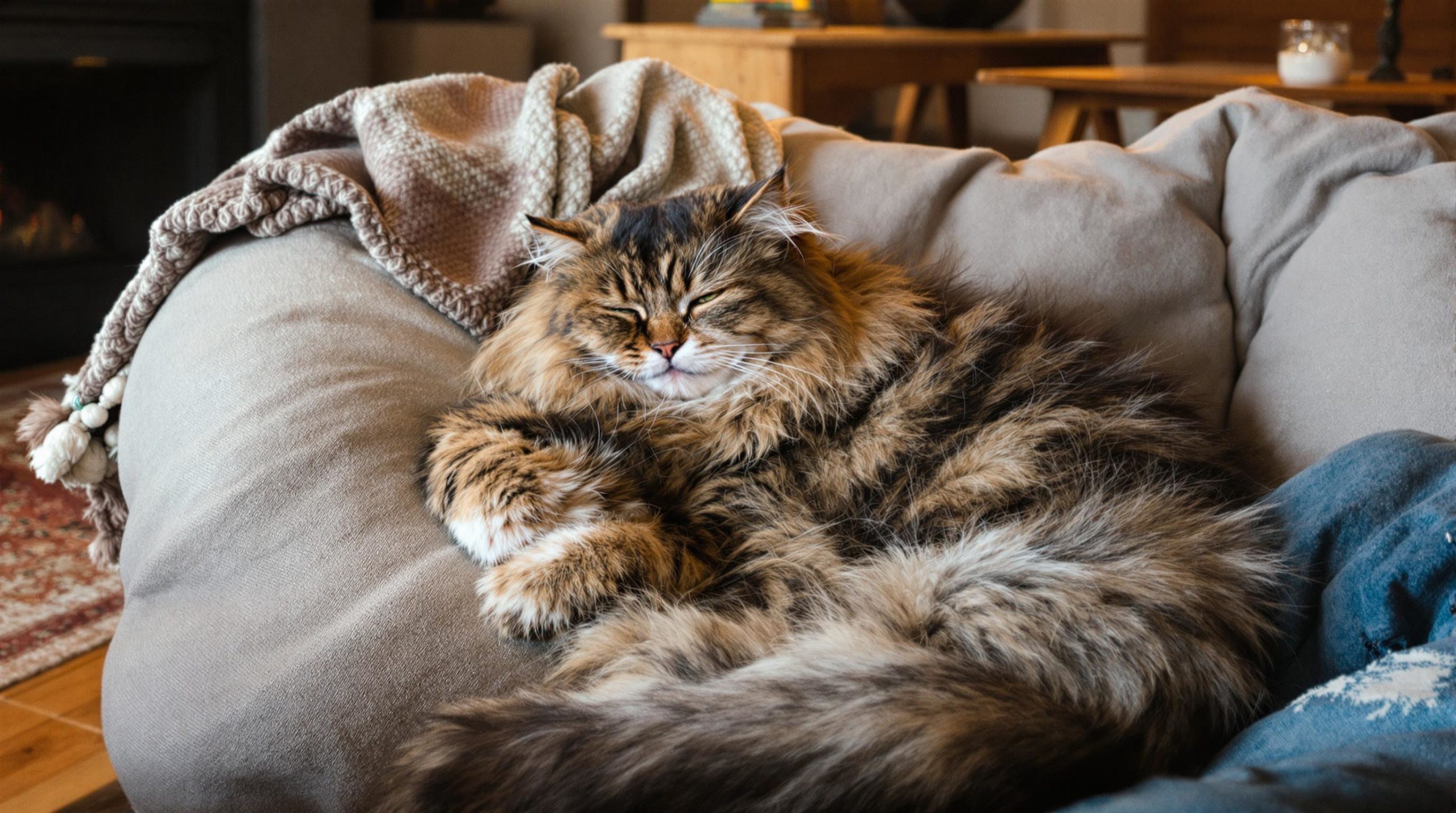Understanding the Intelligence of Maine Coons: Why They Stand Out

The Maine Coon cat is celebrated worldwide not only for its majestic appearance but also for its remarkable intellect. These gentle giants exhibit a blend of curiosity, adaptability, and social sensitivity that marks them as standout members of the feline world. Unlike many cat breeds often stereotyped as aloof, Maine Coons demonstrate a unique combination of problem-solving prowess and emotional responsiveness that fosters deep connections with their human families. From their playful antics involving sophisticated puzzle toys to their intuitive reading of human emotions, their intelligence shines through in numerous captivating ways. This exploration sheds light on why Maine Coons continue to captivate the hearts of cat enthusiasts and how their cognitive traits influence their behavior and relationships within a household.
Exploring the Dimensions of Maine Coon Intelligence: Problem-Solving and Adaptability
At the core of understanding Maine Coon intelligence lies the examination of their problem-solving capabilities and adaptability in various environments. Scientific research, such as the studies conducted at the University of Lincoln, reveals that cats possess a distinctive cognitive framework enabling them to observe, learn, and apply knowledge effectively. Maine Coons exemplify this through their natural tendency to engage with challenges that require innovative thinking and perseverance.
Maine Coons often engage in behavior that highlights their intellectual agility, such as manipulating locks or opening cabinets to retrieve desired items. This demonstrates not only their curiosity but also their ability to analyze their surroundings and devise strategies to achieve goals. Their playful interaction with cat toys designed as puzzles underscores their preference for mental stimulation alongside physical exercise.
Adaptability is another essential facet of Maine Coon intellect. Their ability to acclimate to indoor or outdoor environments is remarkable, as outlined in dedicated resources on Maine Coon exercise needs. This agility in adjusting to changing dynamics allows them to thrive in various household scenarios, from busy families to quieter solo pet homes. Such flexibility is a factor that greatly contributes to their reputation as intelligent pets.
Key Problem-Solving Skills Displayed by Maine Coons
- Observation and Learning: Maine Coons watch and mimic behaviors, learning how to interact with their environment.
- Persistence: They display determination when faced with barriers, ensuring they reach their objective, like accessing hidden treats.
- Adaptation: Their intelligence allows them to adjust hunting or play strategies according to new challenges.
- Trial and error: They experiment with different solutions to puzzles, refining techniques based on feedback.
- Memory use: They recall locations and methods that lead to success, highlighting excellent long-term memory retention.
These problem-solving traits, when paired with their keen observation skills, make Maine Coons particularly adept at navigating complex tasks that challenge their cognitive faculties.

Scientific Perspective on Cognitive Assessment in Cats
Studies published in the journal Animal Cognition have investigated the mental capacities of felines across multiple breeds. The findings consistently demonstrate that Maine Coons exhibit superior problem-solving abilities and a higher degree of adaptability compared to many other domestic cats. This is reflected in their capacity to integrate new information quickly, process environmental cues, and apply learned behaviors effectively.
Within the realm of pet technology, toys that stimulate mental challenges specifically designed for intelligent pets have been extremely effective in keeping Maine Coons engaged. This interaction is not only beneficial for their mental health but also reduces behavioral problems linked to boredom or under-stimulation. Furthermore, vet care specialists note that mentally active cats like Maine Coons tend to have improved overall wellbeing, reinforcing the importance of cognitive engagement.
| Attribute | Impact on Maine Coon Behavior | Example in Daily Life |
|---|---|---|
| Observation | Learns from human and animal actions | Watching owner open a door, then mimicking the action |
| Memory | Remembers outcomes and adapts behavior | Recall for where tasty food or toys are hidden |
| Problem-Solving | Uses creative approaches to overcome obstacles | Opening cabinets or unlocking cat-proof containers |
| Adaptability | Adjusts quickly to new environments | Thrives indoors or outdoors with minimal stress |
For those interested in more detailed behavioral insights, the personality traits of Maine Coons complement their intellect superbly, enhancing their roles as affectionate companions; more can be explored here.
Social Intelligence of Maine Coons: Emotional Bonds and Perceptive Communication
Maine Coons exhibit social intelligence that rivals many other domesticated animals. Their keen perceptiveness to human emotions and social cues facilitates a profound, empathic bond with their owners. This social aptitude goes beyond mere companionship—it involves understanding and responding appropriately to various emotional states.
A study featured in the Journal of Veterinary Behavior substantiates that Maine Coons are capable of recognizing and reacting to human emotional expressions. Their responses can range from comforting behaviors to playful interactions, supporting mental health and emotional resilience in their human counterparts. This dog-like disposition makes them unique among cats, known to follow their owners from room to room and exhibit desire for continuous interaction.
Facets of Social Intelligence
- Emotional Recognition: Maine Coons can detect changes in their owner’s tone or facial expression, reacting accordingly.
- Communication Skills: Their varied vocalizations serve specific purposes, from signaling needs to expressing affection.
- Social Referencing: They look to humans for cues during uncertain situations, demonstrating trust and connection.
- Interactive Behavior: Preference for participating in family activities and social play sessions.
- Empathy: They often display comforting gestures when sensing distress in their owners.
This social sophistication is further underscored by their communicative versatility. Maine Coons use a broad range of vocal sounds—from chirps to gentle trills—and body language to express their mood and needs. These communication tactics not only enhance mutual understanding but also facilitate smooth integration into active households equipped with pet accessories geared for engagement.

Understanding such traits can help owners tailor their pet care approach effectively. Insights into their social needs also emphasize the importance of balanced indoor versus outdoor exposure as detailed in this guide. These surroundings shape social behavior and promote happiness, ultimately reflecting the cat’s state of well-being.
| Social Intelligence Aspect | Significance | Example of Behavior |
|---|---|---|
| Emotional Response | Builds strong bonds | Approaches and purrs when owner is sad |
| Communication Variety | Facilitates clear expectations | Different meows for hunger vs. affection |
| Social Referencing | Seeks reassurance | Looks at owner when exploring novel objects |
| Play Interaction | Fosters mutual enjoyment | Chases feather wand with lively enthusiasm |
Maine Coon Memory and Communication: Foundations of Their Intelligent Behavior
Maine Coons stand out for their superior memory retention capabilities and sophisticated communication, critical components of their intelligence. Their ability to remember both positive and negative experiences aids in forming durable relationships and adapting to the dynamics of their environment.
Long-term memory influences aspects like training and feeding routines. Maine Coons quickly assimilate learned commands or household rules and recall them reliably, making cat training both rewarding and comparatively accessible. For instance, many owners train these cats to walk on leads or respond to name calls due to their willingness to engage cognitively.
Their communication prowess extends beyond typical feline expressions. Studies in Animal Behaviour reveal that different vocalizations correlate with distinct messages. Maine Coons utilize these variations in meows, purrs, and chirps to effectively convey their needs or emotions to their human companions, bridging the interspecies communication gap.
Key Elements of Maine Coon Communication
- Vocal Diversity: Wide range of sounds including chirps, trills, and multiple meows.
- Body Language: Tail position, ear movement, and gaze contribute to rich non-verbal cues.
- Request Signals: Specific meows indicating desires such as hunger or attention.
- Affection Displays: Purring and gentle head butts build emotional closeness.
- Adaptability: Tailors communication style based on owner’s responses and environment.
To encourage this communication flow, incorporating stimulating cat toys and interactive sessions that value their intelligence elevates the level of mutual understanding and enjoyment. Additionally, pet grooming and vet care routines can be enhanced by recognizing behavioral cues that indicate comfort or stress, ensuring the cat’s well-being.
| Communication Mode | Purpose | Practical Example |
|---|---|---|
| Chirps and Trills | Express excitement or invitation | Calling owner to play |
| Multiple Meows | Differentiates needs | Distinct meows for food vs. attention |
| Body Posture | Non-verbal emotional states | Swishing tail indicating irritation |
| Purring | Contentment or self-soothing | While being petted or resting |
Exploring the growth stages and maturation of Maine Coons also helps owners understand developmental shifts in communication and cognitive skills, essential for tailored pet care and successful cat training strategies.
How Affection and Emotional Intelligence Elevate Maine Coon Companionship
The affectionate nature of Maine Coons intertwines seamlessly with their intelligence, creating a deeply rewarding companionship dynamic. Their ability to bond and empathize enriches interactions and contributes substantially to family well-being.
Emotional attachment behaviors, such as seeking proximity and responding to owner moods, enhance the overall quality of life for both cat and human. According to research from the University of Oregon, such behaviors point to secure attachment similar to that observed in dogs, making Maine Coons exceptional in the feline world.
Ways Maine Coons Express Affection
- Following Owner: Trailing family members through the house to remain close.
- Physical Contact: Head butts, purring, and curling beside their person.
- Interactive Play: Engaging in fetch games or other tricks learned through training.
- Social Referencing: Seeking guidance or reassurance in new situations.
- Calming Presence: Lowering stress levels with their soothing vocalizations and presence.
This blend of affection and understanding makes Maine Coons excellent emotional support companions, a fact increasingly recognized by those facing anxiety or loneliness challenges. Employing enriched environments with the right cat food and pet accessories further supports their emotional and physical health.

| Affection Behavior | Emotional Impact | Observed Example |
|---|---|---|
| Following Around | Demonstrates attachment and loyalty | Follows owner from room to room |
| Physical Contact | Induces feelings of comfort and bonding | Rubbing against legs or jumping onto laps |
| Play Engagement | Strengthens mutual affection | Playing fetch or chasing toys |
| Reassurance Seeking | Builds trust and reduces anxiety | Looking back at owner during exploration |
For comprehensive understanding on balancing activity and social interaction, readers can delve into Maine Coon exercise needs and optimize lifestyles accordingly.
Practical Tips to Enhance Your Experience with an Intelligent Maine Coon
Engaging with an intelligent Maine Coon requires mindful approaches that stimulate their brain while nurturing emotional bonds. Implementing strategies that cater to their unique needs can foster an even more fulfilling companionship.
Effective Ways to Cultivate Maine Coon Intelligence and Affection
- Interactive Playtime: Utilize cat toys that challenge their intellect and spark hunting instincts, such as feather wands, puzzle feeders, and laser pointers.
- Structured Training: Encourage learning through positive reinforcement techniques. Training your Maine Coon to obey commands or perform tricks promotes mental sharpness and boosts confidence.
- Consistent Vet Care: Regular medical check-ups ensure optimal brain and body health, along with appropriate cat food to support cognitive functions.
- Stimulating Environment: Provide pet accessories that enhance exploration and comfort, including climbing trees, interactive puzzles, and resting spaces.
- Quality Grooming: Regular pet grooming sessions that involve gentle interaction can reduce stress and build trust.
Recognizing the individuality within the Maine Coon breed, from subtle variances in their character to specific needs outlined in resources like this detailed guide, creates a tailored pet care approach ensuring a harmonious and joyful living experience.
| Strategy | Purpose | Suggested Activity |
|---|---|---|
| Interactive Play | Stimulate mental and physical activity | Use puzzle toys and feather wands daily |
| Training Sessions | Enhance learning and bond development | Teach simple commands and tricks regularly |
| Consistent Vet Visits | Maintain health and cognitive function | Schedule biannual check-ups including nutrition advice |
| Enriched Environment | Encourage exploration and comfort | Provide climbing trees and puzzle feeders |
| Routine Grooming | Reduce stress and promote trust | Daily brushing and gentle massages |
Frequently Asked Questions about Maine Coon Intelligence
- Are Maine Coons easier to train than other cats?
Yes, their high social and problem-solving intelligence makes them more responsive to training techniques, especially those involving positive reinforcement.
- Can Maine Coons live happily indoors only?
Absolutely, as long as their exercise and mental stimulation needs are met with interactive cat toys and activities. Guidance on indoor living can be found here.
- What types of cat food support their cognitive health?
Diets rich in omega-3 fatty acids, antioxidants, and balanced nutrients optimize brain function and overall vitality.
- How can I tell if my Maine Coon feels emotionally connected to me?
Look for behaviors such as following you, seeking physical affection, and responding to emotional states with comforting gestures.
- Are there specific pet accessories recommended for Maine Coons?
Yes, climbing structures, interactive puzzle feeders, and comfortable resting spaces are ideal for engaging their intelligence and needs.